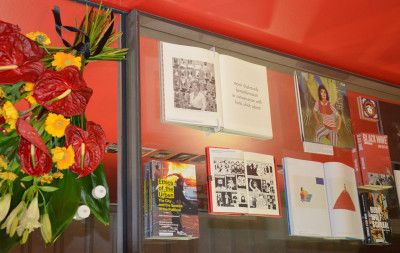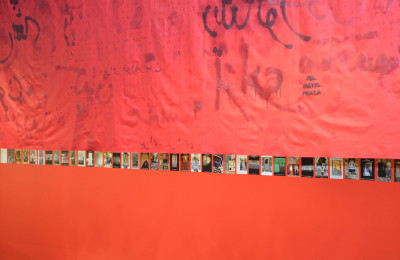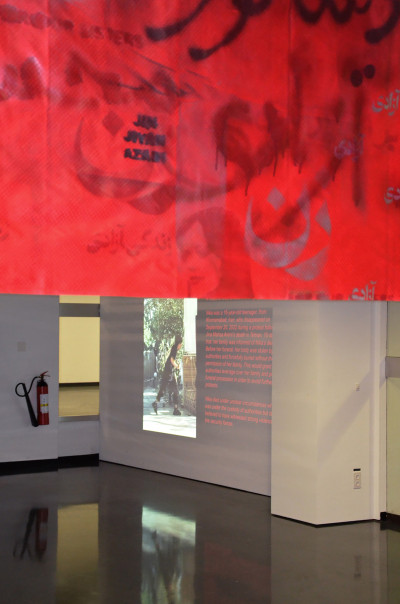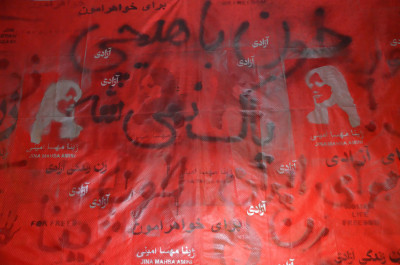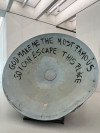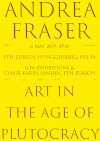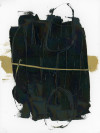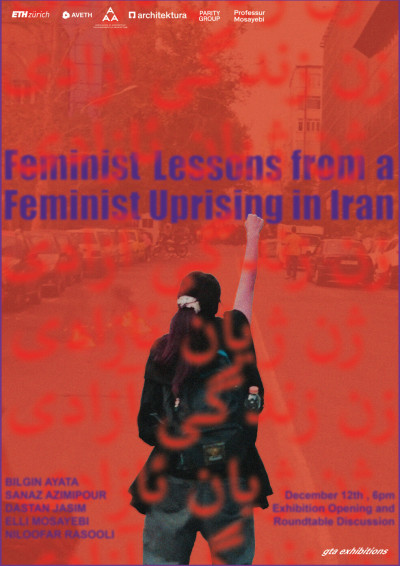
Feminist Lessons from a Feminist Uprising in Iran
gta Exhibitions
Tuesday, 13 December 2022 to Friday, 27 January 2023
Location: HIL Foyer
12. December 2022, 6 – 8 pm
Opening and roundtable discussion with Bilgin Ayata, Sanaz Azimpour, Dastan Jasim, Elli Mosayebi and Niloofar Rasooli
In the recent history of Iran, walls of gender apartheid have appeared one after the other, but all scratched up, all scratched up, all scratched up by women living behind them. The walls, the walls, the walls. The walls have sprung up like mushrooms in the recent history of Iran, from the tangible and intangible segregating walls of the public arenas, concealing women's bodies and muting their voices, to the heavy walls of Sakhteman-e Vozare, the center of the so-called morality police in Tehran, where the engine of muting works, where Jina Mahsa Amini, our beloved sister from Saqiz, Kurdistan, was murdered on September 16th.
We know these walls by heart; we have all been kept behind them, scratched them, and resisted by imagining the impossible, revoking the hidden stories, and desiring this apartheid’s otherwise. In the recent history of Iran, the built environment has coexisted with hegemonic power, muzzling voices, veiling bodies, defining forbidden territories, and policing dreams and hopes. The other side of this story, however, is a long history of women, not lending their hands to these walls, but curling their fists; the other side of this story is the story of breaking the walls; the other side of this story is the story of the radical transgression and uprising of those, in the words of Audre Lorde, «who never meant to survive» .
Questioning, arresting, beating, and murdering the body of Jina has sparked the fire of ‹Woman, Life, Freedom.› all over Iran; it has risen the voices and brought oppressed bodies on the street to reclaim the rights of women over their own, attacking and destroying the concrete walls of tyranny. Now in Iran, tears are falling from one of our eyes, and blood from the other. These tears and blood bring burning questions to our conception of Feminism under the shadow of Neo-Orientalism; once again calling us to think whose voice matters and whose voice is constantly being interrupted, misunderstood, silenced, and erased.
‹Feminist Lessons from a Feminist Uprising in Iran›, thus, aims to unpack these tears and blood by listening to the voices coming from behind the walls of gender apartheid in Iran. Choosing walls as the core of our project, we are aiming to think from, with and for the fists attacking the walls of oppression.
This exhibition and event are curated by an anonymous participant, Alexander Cyrus Poulikakos and Niloofar Rasooli. The project includes contributions from Qianer Zhu, Elisaveta Kriman and Deniz Örün and was made possible by gta exhibitions, Parity Group, AAA, Architektura, aveth and the Chair of Elli Mosayebi.
Photos: Alexander Poulikakos
